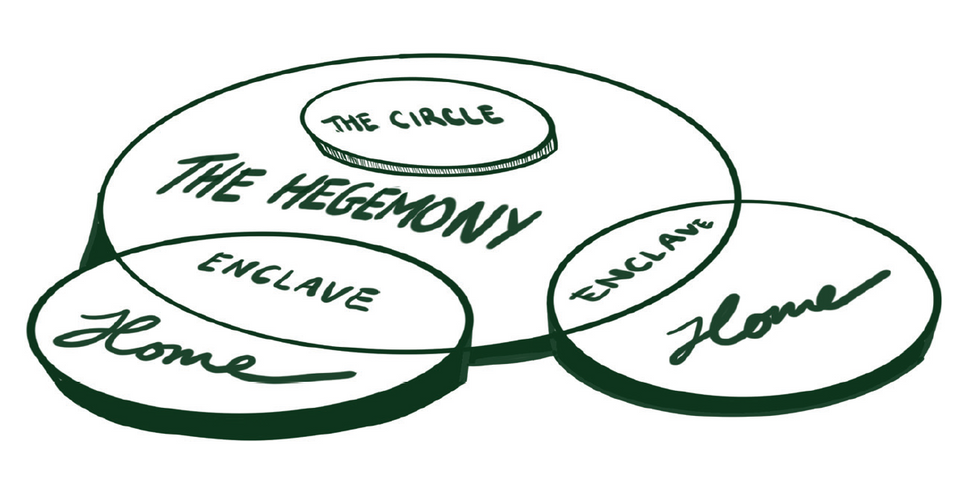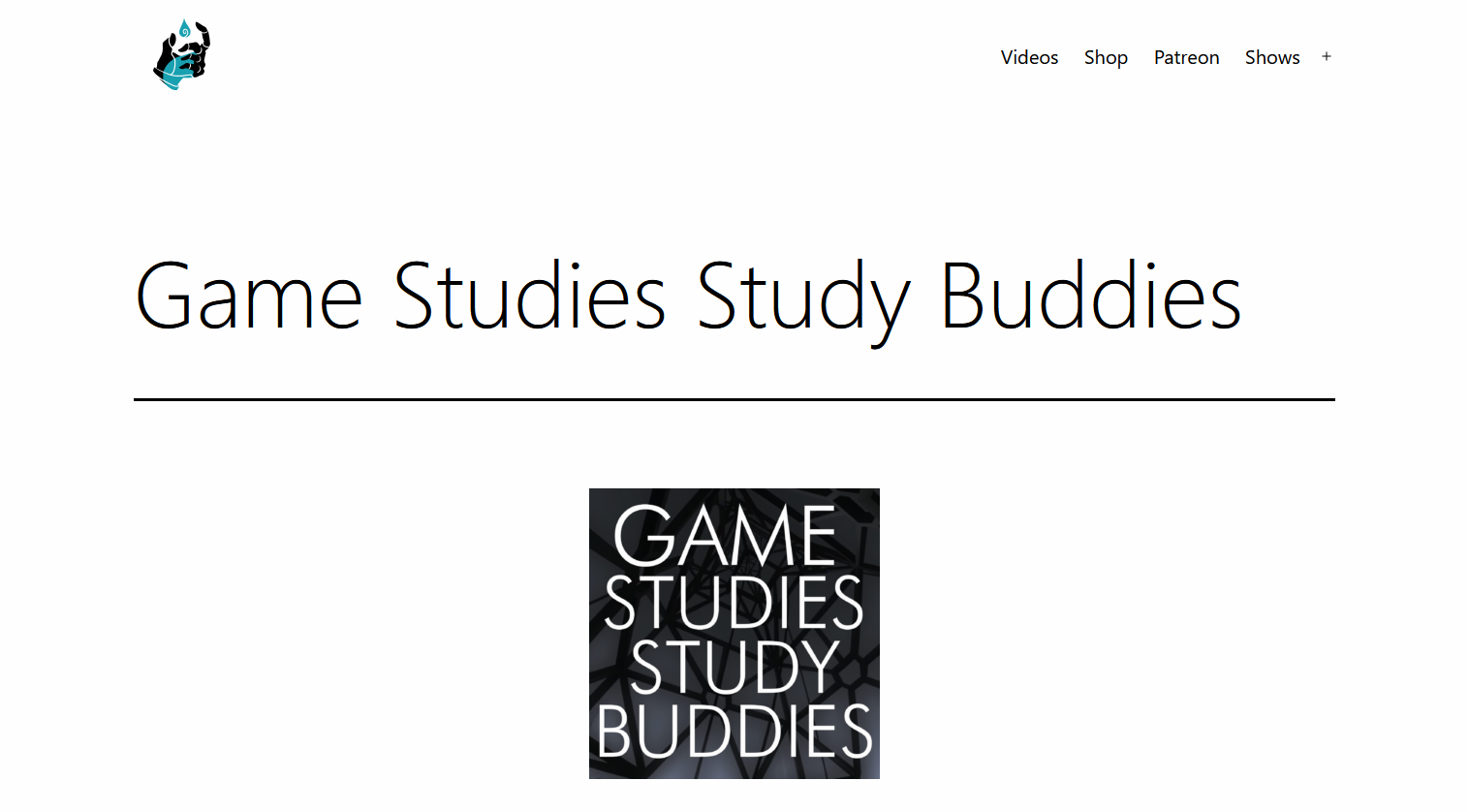Drawing Circles Around Things

Happy Friday, gamers and players and all manner of gamespeople!
I'm back in the playtest mines with Spectres of Brocken, having just kicked off another playtest of the latest ruleset. The key changes I'm testing are:
- Clarified wording for the move that lets you gain Words from revealing personal information in interactions with other players (So What's Your Deal?). This had previously been changed to streamline the move. My initial impression is that this still doesn't fix the issue I have with it being a bit unclear on when you'd trigger it and I think I'll have to go back to the earlier version but with maybe adjusted wording. This is my biggest concern with the Academy Phase. This move needs to be very clear in how it's triggered because it affects the flow of the Academy Phase a lot and I'm still struggling to settle on it.
- Changed the starting worldbuilding procedure to add three times as many starting Words in the Word Bank as before (Once per player after each set of questions rather than once per player at the end of all the questions). I think we started with too few Words previously and so far I find adding more starting Words doesn't seem to be that detrimental. Something to keep an eye on for the future though.
- Revised the Scene Questions list for the Academy Phase. We've only done one Academy scene so far, but I'm pretty happy with the new list and look forward to continue playing with it.
- Added a new move to the Conflict phase to let you bring one of your Links into play to add a Blood to the pool and attempt to draw out a scene. This is mainly a tool for players to adjust pacing if they need to.
- Blood can now only be assigned to Traits rather than to any item on the Pilot Sheet. This makes it much clearer what Blood does, and you can still reflect changes fictionally if you want.
Regardless of the testing outcomes, I am really enjoying the play in the latest playtest as we've come up with a really fun situation for our Academy Phase where we had to describe what our pilots and mechs look like when we attend a sort-of Met Gala that then instantly turned into a team combat arena.

I've also been catching back up on Game Studies Study Buddies, a podcast where two academics read, summarize and respond to various books and texts about game studies. They usually focus more on videogames, but the latest two episodes have been specifically on tabletop roleplaying games - Jon Peterson's The Elusive Shift, and William J. White's Tabletop RPG Design in Theory and Practice at the Forge, 2001-2012, with guest Austin Walker.
I highly recommend these two episodes (and the podcast more generally, since I believe a wide view of games is helpful to any gamemaker) as the books are really interesting looks into specific periods in time of tabletop RPG design and some of the communities active in those periods, and the hosts also have very fruitful discussions about the material.
I also read an interesting overview of "the OSR" as a term in use and as a signifier of some idea of community or ethos or trend or a history of different meanings attached to a persistent symbol.
Because of these inputs, I've been thinking recently about groups, definitions and labels - attempts to draw circles around things. I've used terms like "storygames", "OSR", "tradgames", "itch games", "LARP", and "lyric games" when discussing and dissecting design in tabletop RPGs. I've used terms like "Eurogame", "Ameritrash", "wargame", "party game", "train game", "miniatures game" and "trick-taking game" when discussing and dissecting design in board and card games. I've used terms like "soulslike", "casual game", "mobile game", "open world game", "triple-A game", "indie game", "alt game", "gacha game", "roguelike", "roguelikelike", "MOBA", "walking simulator", "interactive fiction", "installation game", "alternate reality games" and many more when discussing and dissecting design in videogames.
These labels or genres often don't just describe a game's apparent mechanisms, aesthetics, or style, but also the communities that gather around them. They tend to stand in for some sort of philosophy of play or assumptions of game principles that are privileged by designers and fans. They're also often very contentious and framed in clear opposition to other labels, while actually being malleable and porous.
It's tempting to try and use these labels to discern unique differentiators between these groups and ascribe some sort of great meaning to it, and I admit I have and still do this e.g. "storygames design emphasizes the one-shot/story input/bagels while OSR/tradgame design emphasizes the campaign/story output/hotdogs".
However, there's a danger of turning a descriptive/investigative tool into a prescriptive simplifier i.e. "some grouping of traits and tendencies in games/players were reinforced and came to be connected under the label XYZgame for convenience" which might lead to "how and why did that come about and what purpose does that serve or is believed to serve?" as opposed to "XYZgames are like this, and this trait is a defining feature XYZgamers and how good they interact with all games" which might lead to less questioning of the principles and conditions behind the traits. This is especially dangerous if we start to believe that these collection of traits and trends we group into a label are fundamental to the shape of games, that they provide some truth about what games are, rather than responses to the material and social conditions that caused these groupings to coalesce.
This is why I often hesitate when asked to define myself and what I do. I design games, I make games. They're mostly tabletop RPGs nowadays, but I started off in card and board games and most of my critical awareness of games as a cultural space and the breadth of games and play first came through videogames. I don't call myself a storygames guy or a Eurogames guy even though I play and make a lot of stuff that fit into those labels. I don't want those ideas of what my games are to limit my perception of what my games could be. I want to draw from the wide world of games and comics and puzzles and books and TV and movies and music and cooking, all the things I play every day, to make my games.
Look, this isn't some unique or new opinion against the allure of simplification offered by labels and groupings. We can see the shitty outcomes of their misuse in myriad ways in our daily lives and hobbies. However, I've been happy to be reminded about their folly as I listened to and read about different histories of play and design cultures in tabletop RPGs.
These histories illuminate so much about the context and conditions that led to the ebb and flow of game design trends into the clusters recognizable today - be it through the slow back and forth of zines and sudden bursts through conventions, the long posts and heavy moderation of webforums and the ephemeral present of chat clients, the idea of control and authorship offered by blogs and the incessant velocity and reach of social media platforms. Our conditions are constantly shifting and the tools and approaches we use need to shift along with them.
It's been a good reminder to pay attention, to look beyond the easy conclusions promised by labels, and to look back to conditions and context that inform my design process, to look to my practice as a continuation of a history of game making, and to look beyond to where else my games can go.
Defined regards,
Aaron
